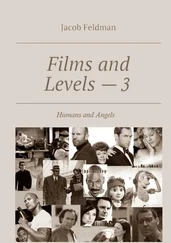1.
Where does that expression come from: do unto others as you would have them do unto you. I keep meaning to look it up. Because when it comes time to discuss the one disaster that almost toppled everything, that is the phrase, the explanation, that keeps coming back. Someone, or more precisely a coalition of someones, tried to do unto me as I had been doing unto others since the beginning. My first mistake was not taking them seriously. I did not take them seriously for the worst possible reason, because I had never heard of them. No one had heard of me when I started and I did okay.
They bought up the first blocks so quickly, and with such determination, it should have set off every alarm bell in history. But they were upstarts and instead triggered a rare failure in my imagination, in that I couldn’t particularly imagine them pulling it off. We judge ourselves by our unlimited potential, and others by their limited abilities. Before we had even had our first strategy meeting they were up to thirty per cent, and a few days later they owned forty-five. At that early juncture, where they were getting their money from, who might have been backing them, remained a deep mystery, one which I was paying a dozen guys full-time to solve. It was like an alien invasion, completely unexpected and just as inexplicable.
There are hundreds of ways one could disassemble our organization, some of which, from a fairly narrow point of view, might even appear to make it more efficient. If you were to start selling off divisions, the permutations are endless, which ones to sell and which ones to keep. Efficiency has never been a buzzword in the circles that surround me. I prefer risk, experimentation. So their motives were not hard to discern. They wanted to rip my company to bits — fast money for the taking. There were so many different scenarios in which, no matter how ridiculously high the shares rose, the takeover could easily pay for itself. I’m sure their mouths watered as they ran through the projections. What I couldn’t understand was how they had managed to remain so secret. A series of shell organizations that we traced, each leading to, as far as we could see at the time, an unrelated owner. The more we learned the less we knew. It was infuriating.
They walked into the meeting, twenty of them, all in black suits. They were like a comedy routine, but by that point I was fighting for my life and didn’t find much funny. I had been untouchable for so long, it had been such a long time since anyone had seriously challenged me. It was as if there were a ten-second delay before the fight within me fully kicked in. I realized something at that first meeting, staring at all those cheap black suits and the pudgy faces that topped them off. My sense of reality had slipped. I thought I was out there in the trenches, fighting every day, fighting full-on and giving it everything I had. But what was invisible to me was that so many of the fights were fixed. It wasn’t that I couldn’t lose. I lost my fair share of battles like anyone else. But it had been at least twenty years since I had been in a fight where I could lose everything. And when there’s the possibility you might lose everything, it’s a different kind of war. (Of course, in this case, losing everything is only a figure of speech. A whole series of golden parachutes would kick in if they managed to sack me.)
At that first meeting they hinted, more obvious than an outright offer, that they’d grease my palms if I stepped out of the way. I did my best to laugh in their faces. In retrospect, I can see I wasn’t convincing. It was a rare performative failure. They had me backed into a corner and knew it better than I did. There were twenty of them at that first meeting and we were a bargaining team of nine. I made a mental note that at the next session we’d bring at least forty.
For some reason Emmett wasn’t at that first meeting, proof that I wasn’t taking the challenge seriously enough, but I was sure to have him by my side at every subsequent session. We developed an ongoing routine: every time they came at us with something, I would attack the numbers or fine print, and then Emmett would follow with some small joke attacking one of them personally — something about their appearance, weak breeding or lack of credentials. I knew there must be a maelstrom of insecurities in that room — you don’t try to slay Goliath if you’re not worried about the size of your dick — and I intended to ferret out these insecurities one by one. You could tell when Emmett hit a nerve: the victim would flinch and then immediately smile, or grimace, or cover in some other way. They had good poker faces for business but not for their personal shortcomings. Because there were so many of them, we could keep moving it around, find the weak links and focus in. After a few sessions, Emmett, who had been monitoring the reactions to his jokes like a hawk, honed in on the three we decided to meet. For legal reasons I will refer to them as A, B and C.
At first, only B agreed, the other two understandably explaining that we should fuck right off, as I too would have done in their position. But at least we had B, the brother of one of the two ringleaders, dragged into the takeover through filial association alone. B had an endless list of hang-ups regarding his brother that we listened to as patiently as possible. Things were moving fast. Offers had already been tendered and a battalion of lawyers were pouring over them with an arsenal of fine-tooth combs. Neither Emmett nor I felt we had ten years to waste serving as B’s on-call psychoanalyst, but we kept taking things slow. At least two weeks had passed before he handed us the first useful piece of information. At that time two weeks felt like an apocalypse of waiting.
Our meetings were infrequent, and several times B didn’t show up at all. He was terrified of his brother finding out, nervous about being followed. We had a car pick him up, drop him off at the subway where he travelled five stops, then got in a taxi. Sometimes he had travelled half the city before eventually showing up in some hidden-away dive bar three hours late. But we put up with the antics, because we also believed that, if his brother found out, our only source of information would be cut off. After two weeks he mentioned, perhaps not even realizing what a breakthrough it was, that the core of their bid was a one billion dollar family inheritance courtesy of the other ringleader. (The one who wasn’t his brother.) Their entire bid reeked of decay, so it made perfect sense that death was at the heart of it.
2.
Then, one day, without my doing anything to set it off, we were having a drink on his balcony and Emmett asked me if I wanted a job. I was about to ask what kind of job when I paused for a moment, realizing I already knew. He was going to offer me a job that would bring me closer to my goal. My goal was entirely unspoken: it is possible he had no idea, but I could feel in the way he asked some desire to help, and perhaps also to remain ignorant of specific details. He said I would need a suit so we went to his closet, found one that sort of fit. He gave me an address downtown, told me to show up at nine ready to work. He already knew I would accept.
I arrived the next day and was ushered to my office, told that because of a favour, about which I should never tell anyone, not even my close friends, they weren’t going to interview or train me. I could figure out the job as I went along. The first day I spent filling out paperwork so they could put me into the system. Two weeks later, they handed me my first cheque and a new difficulty arose. I didn’t have a bank account. For dishwashing they had always paid me under the table, and I was paying for my one-room apartment in a similar manner. At first I thought I should simply let the cheques pile up on my desk. That is how much disgust and anger I had for their money. I remembered a story I’d once heard about Erik Satie. After he died, his friends went to clean up his apartment, and found every letter they had ever written to him sitting on his desk unopened. I wanted to emulate that story but knew, in the long run, it was a bad plan. I would need a certain amount of cash to pass at the job, so they wouldn’t suspect me. To buy a few suits, have them dry-cleaned. I didn’t even own hangers. My two pairs of pants and half-dozen shirts were folded neatly on the floor in the corner. I had been placing the one suit that Emmett gave me on the back of my only chair. In the pocket, without telling me, he had placed a wad of cash, I guess to get me through the first couple of weeks. I had been using the money for lunch and nothing else, to make it last as long as possible.
Читать дальше












